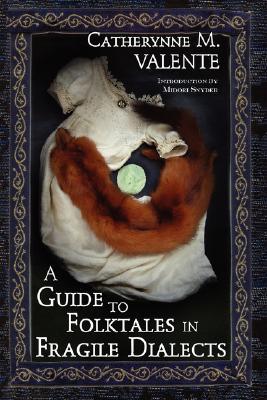What do you think?
Rate this book


"Structured around a series of folktale motifs, Valente's eloquent second full-length poetry collection dissects the perceived roles of women in Earth's and otherworldly fable and myth.... enlightening and enthralling."
-- Publishers Weekly
"Catherynne Valente writes in the language of dreams, which is not rational and yet always makes sense. I could read the poems in this book a hundred times and find new meanings, new pleasures in them. It is an astonishingly beautiful and deeply satisfying accomplishment ... A brilliant, beautiful book."
-- Theodora Goss
"A tale of two grandmothers, one mythical, one real, that will gently, inexorably break your heart. A story of a god's petty curse reimagined as a sensual, sexual postmodern nightmare. A sinister conspiracy of black magic and murder hatched in the land of Lewis Carroll. Those are just tiny morsels in the decadent poetic feast found in A Guide to Folktales in Fragile Dialects -- Catherynne Valente doesn't so much retell legends and fairy tales as twist and sculpt them into new shapes, stunning objets d'art built from exhilarating language that never flinch from painful truths."
-- Mike Allen, three-time Rhysling Award winner
"Her poems enchant, enthrall and devastate, and this collection takes the astonishing skill she showed in Apocrypha and distills it, deepens it, sharpens it into a tool to carve stories out of language. If Sappho had written Ovid's Metamorphoses, she could not have done better than this."
-- SF Site
Born in the Pacific Northwest in 1979, Catherynne M. Valente is the author of the Orphan's Tales series, as well as The Labyrinth, Yume no Hon: The Book of Dreams, The Grass-Cutting Sword, and four books of poetry, Music of a Proto-Suicide, Apocrypha, The Descent of Inanna, and Oracles. She is the winner of the Tiptree Award and the Million Writers Award and has been nominated for the Pushcart Prize and the World Fantasy Award, the Rhysling Award, and shortlisted for the Spectrum Award. She currently lives in Northeastern Ohio with her partner, two dogs, and two cats. Her sixth novel, Palimpsest, will be released by Bantam Spectra in February of 2009.
168 pages, Paperback
First published May 23, 2008